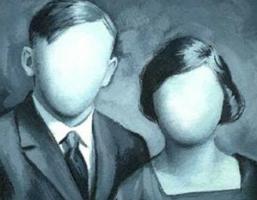Stress, anguish and anxiety: are they the same?
Currently, it is very common to come across technical words of psychology, psychiatry or psychoanalysis. which, by not having a sufficient context, can confuse those who are not dedicated to said disciplines. If for a health professional it is usually difficult to locate a condition, all the more reason it will be for who has not undergone training that allows him to identify in a practical way what he has reviewed theoretically.
Understanding stress, distress and anxiety
Before defining each of the concepts, it is necessary to consider the fear as the instinctive base that sustains each. This emotion Its objective is to awaken physical stimuli in such a way that the human can react to situations of danger, that is to say, that, from real situations of life or death, our body is activated for the survival.
However, it has been found that both stress and anguish and anxiety are characterized by physically presenting themselves in a similar way to fear, with the difference that the frightening factor can be imaginary or without life-threatening characteristics.
Because the human being is complex in mind and body, it becomes necessary to take into account anything that happens to him from the biological, psychological and social perspective.
- You may be interested in: "Emotional discomfort: possible causes, and how to overcome it"
Identifying the manifestations of each
A picture of stress, anxiety and/or anguish can be identified by how it manifests from different points. The signs, that is, the visible and the palpable, as well as by symptoms, which are the subjective and intangible reactions, They will be the guide that allows us to identify that something atypical is happening to a person.. To mention a few we have:
- Physical: chills, paralysis of parts or the entire body, pain, increased heart rate, agitation, tremors, a feeling of oppression in the stomach or chest, sweating, among others.
- Mental: disorganization of ideas, catastrophic thoughts, devaluation of oneself and the environment.
- Emotional: irritability, flattening, excessive worry, feeling down, sadness, despair.
- Behavioral: excessive order, not finishing activities, change of decisions.
- Social: isolation from groups, dependence on certain figures that mean protection, poverty of affective relationships as a couple, friendship or family.
It will be important to understand that stress, distress and anxiety are concepts, which means that these words name a body of knowledge that has been ordered, understood and accepted by a person or a group of people and that by being able to name it, it will then be "easier" to locate it and differentiate it from other conditions. Doctors, psychologists, psychoanalysts and philosophers are the main ones in typifying what happens to the person depending on the combination, frequency, duration and intensity of signs and symptoms.
- Related article: "Emotional psychology: main theories of emotion"
How to distinguish them?
These concepts are not always related to the disease category, since what they are experienced is normal and they function as adaptive mechanisms similar to fear. However, important differences have been detected between these three concepts.
Stress is related to external demands normally linked to the social that affects the emotional, and as a consequence triggers physical symptoms.
Anxiety often focuses on physical symptoms triggered by jumps from abroad or by devaluing or catastrophic thoughts that make the person feel at risk, even manifesting in panic attacks.
Anguish, a sensation present in both anxiety and stress, is often characterized by the intangible and described as an existential ailment or grief, mostly related to depression or psychosis.
The evolution of the explanations of stress, anguish and anxiety go hand in hand with technology, scientific advances and social movements. All of the above causes the information that is usually found to become confusing, contradictory or even monotonous. The only thing we can ensure about these conditions is that they generate suffering and pain for the person, so looking for a way to help alleviate what you feel will be the engine to continue defining more and more clearly what means.
Cognitive behavioral therapies They will be the most appropriate to deal with what refers to thoughts and behavior, they will help to raise awareness more acutely and that will make it easier to be alert, especially in a preventive way.
Humanistic or psychoanalytic therapies will have the objective of working from the affective part, conflicts in relationships and identify the source of the situation.
Medical treatments will be useful to calm what is related to the body and what is uncontrollable by the mind. In the same way, narrative therapies will be able to give words to feeling and social and systemic imposed discourses to raise awareness of the environment.
Each of the specialists in this will make an effort to find a way for the person to suffer less, however, it will always be It is important to remember that the definition of a concept can change, depending on the progress in research from different areas. Stress, anguish and anxiety are not the same and they are not so different from each other, the only people who can define the severity will be the professionals and the person who suffers it, so the precise definition of what each person suffers will be occupation fingers. If a specialist does not hit the nail on the head, it will be another and the success in this will be the relationship that is created and the person's search to understand each other more and more. psych. Greece S. Romero Sanchez


